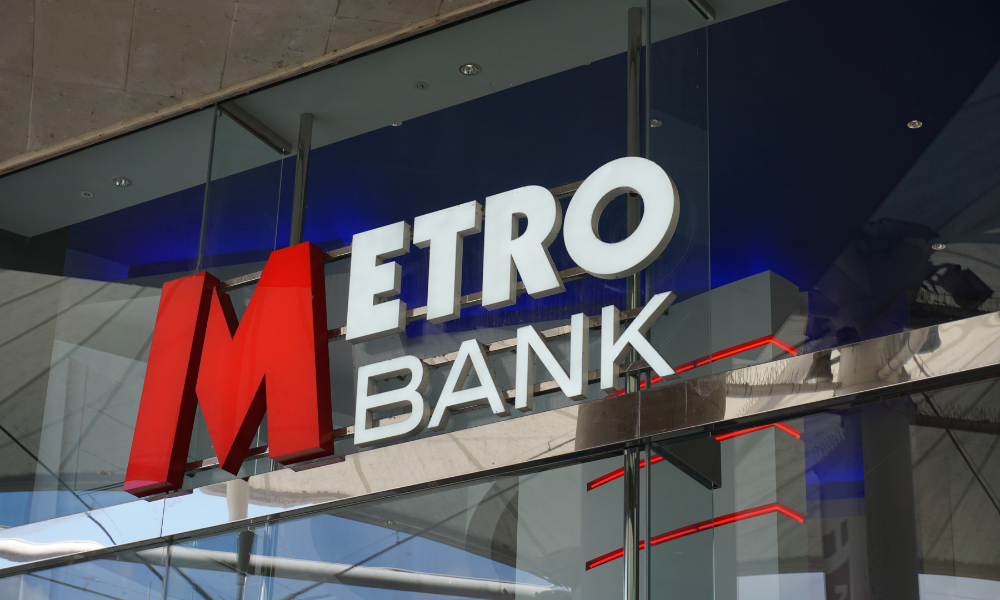Metro Bank gets offer that would see Shawbrook Bank investor take control

Metro Bank has emerged as the latest target in a growing wave of consolidation across the UK financial sector, with reports indicating that private equity firm Pollen Street Capital has approached the lender with a proposal to take it private.
The approach comes less than two years after the high street challenger narrowly avoided collapse, secured through a £925 million recapitalisation involving £600 million in new debt and a substantial equity injection led by Colombian billionaire Jaime Gilinski Bacal, who now holds a majority stake via his vehicle Spaldy Investments.
If successful, the deal would remove Metro Bank from the London Stock Exchange, dealing another blow to the UK’s public markets as concerns deepen over the steady exodus of mid-cap financial firms.
Implications for the Mortgage Market
For mortgage brokers, Metro Bank’s potential transition from a publicly listed firm to private equity ownership raises immediate questions about strategic continuity. The lender has increasingly shifted focus towards commercial and corporate lending, but it remains active in residential mortgages—particularly among self-employed borrowers and niche segments underserved by high street incumbents.
Its streamlined approach to intermediary partnerships and turnaround times have helped retain appeal in a crowded market. Brokers will now be watching closely for signs of whether a new ownership structure could lead to shifts in product mix, underwriting appetite, or service levels.
The bank’s branch-centric model—once celebrated for its customer experience innovations—has proven expensive to maintain in a digital-first world. Nevertheless, Metro continues to operate around 75 locations nationwide and opened approximately 30,000 new current accounts last quarter, suggesting continued relevance in the retail space.
Pollen Street’s Strategic Motive
Pollen Street is a familiar name in UK finance circles, holding a significant stake in Shawbrook Bank and previously exploring a merger between Shawbrook and Metro. The investment firm is reportedly pursuing corporate combinations over public listings, having also initiated discussions with Starling Bank about a £5 billion deal.
Should a transaction proceed, analysts say Shawbrook’s specialist lending profile and Metro’s retail deposit base could provide complementary advantages. However, combining operations would likely require significant integration efforts and regulatory engagement.
Neither Pollen Street nor Metro Bank have commented publicly on the latest reports.
Legacy of Regulatory Turmoil
Metro Bank’s brief but eventful history has not been without incident. The Upper Tribunal this week upheld a ruling from the Financial Conduct Authority, which found former executives Craig Donaldson and David Arden knowingly authorised misleading financial disclosures in 2018. That episode, which involved misstatements of risk-weighted assets, saw the bank’s share price fall and contributed to its reputational damage.
The bank was fined £10 million by the FCA in 2022, with further penalties levied by the Prudential Regulation Authority the year prior. The current leadership, under CEO Daniel Frumkin, has sought to steady the ship through asset sales, staff reductions, and a shift toward higher-margin lending.
Metro Bank shares, once valued above £30 during the peak of its market confidence in 2018, closed on Friday at 112.2p—bringing its market capitalisation to just over £750 million. While that marks a sharp decline from earlier highs, the stock has trebled in value over the past year, driven by improving fundamentals and speculation around its future.
A Cautionary Tale for New Entrants
Founded in 2009 with a vision of shaking up high street banking, Metro became the first new entrant to the UK market in over a century. Its early promise, built on seven-day branches and service gimmicks such as dog-friendly policies, gradually gave way to operational challenges, IT failures, and costly compliance missteps.



